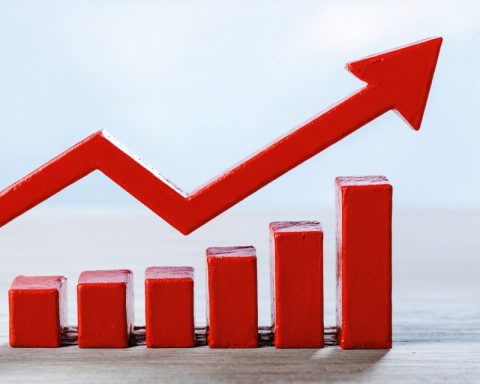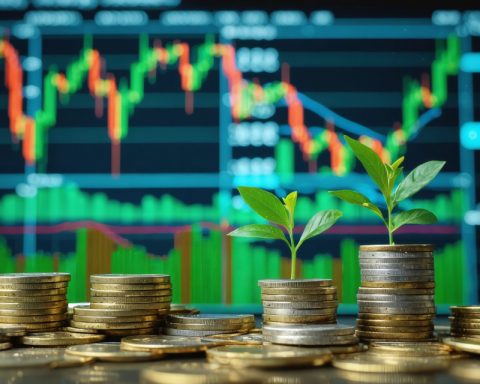South Korea’s stock market experienced a sharp decline in a tumultuous trading session, as political instability overshadowed financial figures on Wednesday. The chaos erupted after President Yoon Suk Yeol’s brief imposition of emergency martial law, alongside a decree deployment of military forces—events which he swiftly reversed, creating widespread uncertainty.
Samsung Electronics, a major player in the global chip market, saw its stock dip by nearly 1%. Meanwhile, LG Energy Solution and Hyundai Motor were hit harder, with stocks falling by 2.8% and 2.4%, respectively. The financial turbulence extended to other large corporations, as shares of SK Hynix, Naver Corp, and Samsung SDI also took a hit, declining over 2.5%.
In a broader market context, Korea Gas Corporation faced a tremendous fall on the Kospi index, experiencing a more than 14% drop. The benchmark Kospi index itself decreased by 2%, with the Kosdaq following closely with a 2.4% decline. Amidst the panic, the South Korean won saw further depreciation, albeit partially recovering to 1,415.78 against the dollar.
The government’s reaction was swift, with Kim Byung-hwan, Vice-Minister of Economy and Finance, announcing potential market-stabilizing measures worth 10 trillion won ($7.07 billion). Simultaneously, the Bank of Korea held an urgent meeting to increase short-term liquidity and ensure market stability.
Internationally, the iShares MSCI South Korea ETF reflected these jitters, dropping as much as 7% before recovering slightly to end 1.6% lower. The episode underscores how domestic politics can rapidly impact economic health and investor confidence.
Market Chaos in South Korea: Expert Insights and Future Predictions
The recent disruption in South Korea’s stock market highlights a crucial intersection of political instability and economic performance. As President Yoon Suk Yeol’s brief imposition of emergency martial law created unforeseen volatility, financial strategists analyze the broader implications for South Korea’s economic landscape.
Key Insights and Market Analysis
The tensions stemming from the political upheaval directly impacted South Korea’s major companies. Giants like Samsung Electronics, LG Energy Solution, and Hyundai Motor each saw significant stock declines, reflecting global investor uncertainty. The cascading effect was observed across the Kospi index, which experienced a 2% decline, signaling concerns over the country’s financial health.
Predictions and Future Trends
Given the immediacy of governmental responses, including the Vice-Minister of Economy and Finance’s announcement of potential market-stabilizing measures worth 10 trillion won, analysts predict an intense period of market recalibration. The efficacy of these interventions will likely dictate the near-term economic recovery. The Bank of Korea’s urgency to inject short-term liquidity suggests an imminent stabilization effort, but experts warn that persistent political instability could continue to deter foreign investment.
Economic Stability and Security Measures
Security in financial systems and political stability are intrinsically linked. South Korea’s swift governmental actions serve as an assurance to investors, yet underline the fragility that rapid political changes can introduce. A robust framework for political risk mitigation might be necessary moving forward, which will include reinforcing governance policies to prevent similar episodes from disrupting markets.
Comparing Regional Impacts
The shockwaves from this event also touched the international community, as evidenced by the iShares MSCI South Korea ETF’s movement. International investor reaction sheds light on the critical need for consistent and transparent communication from South Korea’s administration to global markets. Notably, similar trends have been observed in other global markets during political crises, emphasizing a universal strategy in risk management.
Innovations in Market Response
In the face of these challenges, South Korea might explore innovative financial instruments and policies to hedge against future instabilities. The usage of derivatives or insurance products tailored to political risks could offer some security to investors wary of similar occurrences.
Conclusion
The turbulence in South Korea’s stock market serves as a reminder of the interconnectedness of political actions and economic outcomes. While government measures appear promising in stabilizing the market, consistent vigilance and strategic foresight are paramount. As the world watches how South Korea navigates this path, the insights gleaned could redefine market responses to political upheaval in future contexts.
For more information about South Korea’s economic strategies and market analysis, visit South Korea’s Government Portal.








